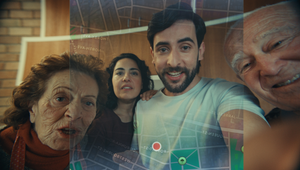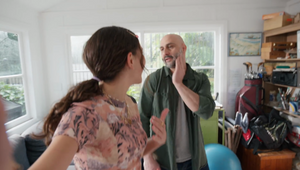
New Research from 72andSunny and CrowdDNA Reveals Why Global Brands Must Localise

The event is part of the agencies’ ongoing New Narratives collaboration that explores significant shifts in cultural narratives.
Leading Australian marketers Fiona Bateman (head of brand at Menulog), Nicholas Hirst (brand and cultural marketing at Google) and Tom Donald (creative strategy lead at Lion), attended the event to give their expert perspectives on why and how modern brands must localise their marketing.
Three key insights with particular relevance for marketers emerged during the discussion.
1) Local audience insight and understanding maximises marketing effectiveness
Nicholas used Google’s sponsorship of key Australian sporting codes like the Australian Football League and Australian Open to illustrate this point.
“Showing up with work that doesn’t feel distinctly local - around properties that are distinctly local - just doesn’t feel ‘respectful’ to our audience. When we really meet that audience with a message that's rooted in Australian culture, we’ve had our best results, and it’s also when we drive the most social conversation.”
This insight was reinforced by the success of Google’s work surrounding these events. A ‘Helping you help others’ brand film was brought to life by infusing Google’s core product features with the local insight that grassroots footy plays a powerful role in the way Australian families build and experience connection. Storytelling the value of Google’s ubiquitous product features through this local lens helped to make the work some of the brand’s most effective campaigns globally when it came to driving brand advocacy.
2) Cultural relevance is essential for brands that want to make a meaningful impact
This discussion about the marketing potential of activations and sponsorships led to Fiona describing Menulog’s 2022 State Of Origin-focused TV campaign as a perfect example of how a major global brand can sometimes get things wrong, plus how they can course-correct.
Menulog launched their new global TVC starring Katy Perry during the State Of Origin, but it quickly generated negative coverage online from footy lovers who weren’t necessarily big Katy Perry fans. Menulog responded quickly, replacing the ad with a new, swiftly-made tactical campaign starring local footy legend Wendell Sailor that amusingly acknowledged their mistake. This irreverent approach was welcomed by fans and led to extremely positive results.
“Brands must add value to cultural moments, not just use them as a platform to solely channel their own agendaIt’s about being relevant, so that you are always giving back to fans,” said Fiona.
3) It’s never too late for brands to strive for local cultural relevance
The panel conversation raised the issue that many local brands often lean too heavily on global marketing assets, and that rectifying this can feel too hard.
Tom from Lion disagreed with this, arguing “Cultural relevance is something that, if brands haven’t been doing it right, they have to learn their way back into doing. From simple stuff like using social channels to respond to what’s happening in culture, to providing real meaning and relevance to larger audiences via bigger broadcast channels and meaningful innovation. Brands die otherwise. It’s a battle and you can’t just throw global ads at the market.”
Each of these insights, plus more, are explored in depth in the latest New Narratives research by 72andSunny and CrowdDNA.















